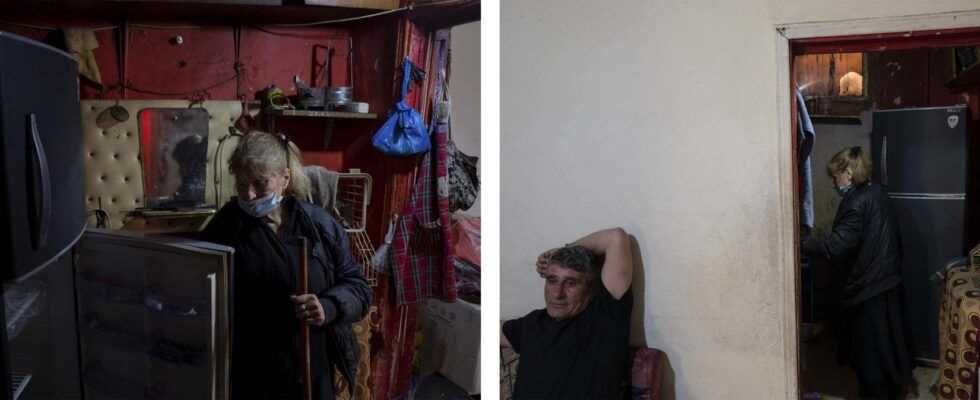ReportageThe Lebanese have suffered since 2019 a financial collapse, an economic and health disaster linked to Covid-19 and a deadly explosion in Beirut. Faced with the negligence of their leaders, a large part of the population has fallen into poverty and now depends on food aid.
The sunny days photo rests on a small worm-eaten wooden shelf. Elham Lachish, 71-year-old blonde with big earrings smiles at the camera, a mischievous glow in her kohl-hemmed gaze. It was about ten years ago, when the fortune teller was established in Nabaa, a poor suburb east of Beirut. In case of heartache or health concerns, her neighbors would slip her a little note so that she could read their future in the coffee grounds.
“Today, no one knocks on my door, even the Ethiopian servants who live in Nabaa. Nobody has money anymore, Elham laments, curled up on the sofa in an unsanitary shack. Anyway, I can no longer afford coffee or a gas cylinder. Even mineral water has become too expensive for me. “ The slightly eccentric clairvoyant, loved by the whole neighborhood, has transformed into a grieving old lady, plagued by poverty, diabetes and the bereavement of her husband, who died of a heart attack four months ago.
After the explosion that devastated the port of Beirut and the surrounding neighborhoods, on August 4, 2020, volunteers came to patch up the front door of his gourbi. From time to time, one of the Lebanese charities which compensate for the bankruptcy of the State brings him a box of food aid. Bags of starchy foods and a can of oil that allow it to last a few weeks. One of these boxes, flattened after being emptied of its contents, serves as a doormat for visitors and as a mop for water dripping from the ceiling.
Between two packages, Elham has to fend for herself. The contents of her refrigerator – a bottle of water, a few pieces of cheese and a toothbrush – speak for her. The only one of his sons who gave him any money was jailed for drug trafficking. The others hardly come to see her anymore, too ashamed not to be able to help her. “We, the poor of Lebanon, are slowly dyingElham murmurs, hiding his tears in a sleeve of his black waistcoat. Don’t ask me to predict the future, I can’t see anything. “
Two United Nations agencies, the World Food Program and the Food and Agriculture Organization, have played this little game for him. Their report, published at the end of March, includes Lebanon in the list of 20 zones facing a risk of famine if economic and social rescue measures are not taken quickly.
You have 87.17% of this article to read. The rest is for subscribers only.
